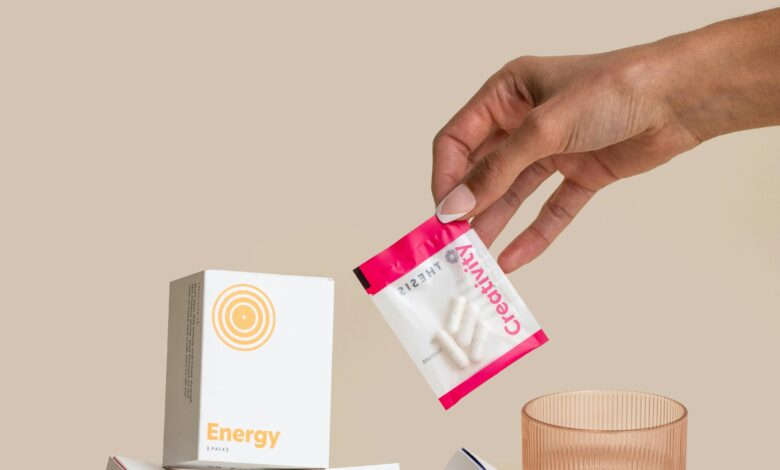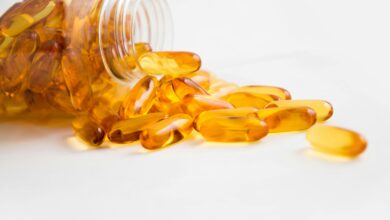How to Use Supplements to Boost Your Immune System

In today’s fast-paced world, maintaining a strong immune system is essential for overall health and well-being. While a balanced diet, regular exercise, adequate sleep, and stress management are the foundation of immune health, supplements can play a supportive role in filling nutritional gaps and enhancing your body’s defenses. However, it’s important to approach supplementation wisely, as not all supplements are created equal, and excessive intake can sometimes do more harm than good.
In this guide, we’ll explore how to use supplements effectively to boost your immune system, including which ones are most beneficial, how to choose quality products, and when to consult a healthcare professional.
1. Understand the Role of Supplements
Supplements are not a substitute for a healthy lifestyle but rather a complement to it. They provide concentrated doses of vitamins, minerals, herbs, and other compounds that may support immune function. The goal is to address deficiencies or enhance specific aspects of immunity without overloading your system.
Key Points to Keep in Mind:
- Supplements work best when combined with a nutrient-rich diet.
- Not everyone needs supplements; some individuals get sufficient nutrients from food alone.
- Over-supplementation can lead to toxicity or interfere with medications.
Before starting any supplement regimen, assess your dietary habits and consider consulting a healthcare provider to identify potential deficiencies.
2. Top Supplements for Immune Support
Here are some of the most widely researched and effective supplements for boosting immune health:
1. Vitamin C
- Why It Helps: Vitamin C is a powerful antioxidant that supports the production and function of white blood cells, which are crucial for fighting infections.
- Sources: Citrus fruits, bell peppers, strawberries, and broccoli.
- Dosage: 500–1,000 mg per day (higher doses may cause digestive upset).
- Tip: Divide doses throughout the day for better absorption.
2. Vitamin D
- Why It Helps: Vitamin D plays a critical role in regulating immune responses and reducing inflammation. Deficiency has been linked to increased susceptibility to infections.
- Sources: Sunlight exposure, fatty fish, fortified dairy products.
- Dosage: 1,000–4,000 IU per day, depending on individual needs (blood tests can determine optimal levels).
- Tip: Consider taking vitamin D3 with K2 for enhanced absorption.
3. Zinc
- Why It Helps: Zinc is essential for immune cell development and communication. It also helps shorten the duration of colds and other viral infections.
- Sources: Shellfish, meat, legumes, seeds, and nuts.
- Dosage: 10–30 mg per day (avoid long-term high doses, as they can impair copper absorption).
- Tip: Take zinc lozenges at the first sign of illness for maximum effectiveness.
4. Elderberry
- Why It Helps: Elderberry extract contains flavonoids that have antiviral properties, particularly against respiratory viruses like the flu.
- Dosage: Follow product instructions (typically 300–600 mg daily during illness).
- Tip: Look for standardized elderberry syrup or capsules for consistent potency.
5. Probiotics
- Why They Help: Gut health is closely tied to immune function. Probiotics promote a healthy balance of gut bacteria, which strengthens the body’s natural defenses.
- Sources: Yogurt, kefir, sauerkraut, kimchi, and fermented foods.
- Dosage: 1–10 billion CFUs (colony-forming units) per day, depending on the strain.
- Tip: Choose multi-strain formulas for broader benefits.
6. Echinacea
- Why It Helps: Echinacea is an herbal remedy believed to stimulate the immune system and reduce the severity of colds and respiratory infections.
- Dosage: Follow label recommendations (usually taken at the onset of symptoms).
- Tip: Use echinacea intermittently rather than continuously to prevent tolerance.
7. Omega-3 Fatty Acids
- Why They Help: Omega-3s reduce inflammation and support immune regulation, making them valuable for chronic inflammatory conditions.
- Sources: Fatty fish (salmon, mackerel), flaxseeds, chia seeds, and walnuts.
- Dosage: 1,000–3,000 mg of EPA/DHA combined per day.
- Tip: Opt for high-quality fish oil supplements free of heavy metals and contaminants.
8. Garlic
- Why It Helps: Garlic contains allicin, a compound with antimicrobial and immune-boosting properties.
- Dosage: Fresh garlic cloves or aged garlic extract supplements (600–1,200 mg per day).
- Tip: Consume raw garlic sparingly to avoid digestive irritation.
3. Choose High-Quality Supplements
Not all supplements are created equal. Poor-quality products may contain fillers, allergens, or ineffective doses of active ingredients. Here’s how to select reliable options:
What to Look For:
- Third-Party Testing: Ensure the product has been tested by independent organizations like USP, NSF, or ConsumerLab for purity and potency.
- Reputable Brands: Stick to trusted manufacturers known for transparency and quality control.
- Bioavailability: Choose forms of nutrients that are easily absorbed by the body (e.g., methylated B vitamins, liposomal vitamin C).
- Expiration Dates: Avoid expired or improperly stored supplements.
What to Avoid:
- Products with vague labeling or exaggerated claims.
- Supplements containing unnecessary additives, artificial colors, or preservatives.
- Unverified online sellers or bargain-priced items, which may indicate poor quality.
4. Tailor Your Regimen to Your Needs
Everyone’s immune system is unique, so there’s no one-size-fits-all approach to supplementation. Factors such as age, gender, lifestyle, medical history, and existing nutrient levels should guide your choices.
Examples of Personalized Approaches:
- For Older Adults: Focus on vitamin D, zinc, and probiotics, as aging weakens immune response.
- For Vegans/Vegetarians: Prioritize vitamin B12, iron, omega-3s, and zinc, which may be lacking in plant-based diets.
- For Athletes: Include antioxidants like vitamin C and glutathione to combat oxidative stress from intense workouts.
- For Pregnant Women: Emphasize folic acid, iron, and vitamin D to support maternal and fetal health.
5. Combine Supplements with Healthy Habits
While supplements can enhance immune function, they work best when paired with a holistic approach to wellness.
Lifestyle Tips to Complement Supplementation:
- Eat a Balanced Diet: Focus on whole, unprocessed foods rich in vitamins, minerals, and phytonutrients.
- Stay Hydrated: Proper hydration supports lymphatic flow and toxin elimination.
- Exercise Regularly: Moderate physical activity boosts circulation and immune surveillance.
- Get Enough Sleep: Aim for 7–9 hours nightly to allow your body to repair and regenerate.
- Manage Stress: Chronic stress suppresses immunity; practice mindfulness, meditation, or yoga to stay calm.
6. Know When to Consult a Professional
While many supplements are safe for general use, certain populations need extra caution:
- Pregnant or Nursing Women: Some supplements can harm developing babies.
- Individuals with Chronic Conditions: Certain supplements may interact with medications or exacerbate underlying issues.
- Children: Dosages must be carefully adjusted for younger bodies.
Always discuss new supplements with your doctor, especially if you’re pregnant, nursing, taking prescription drugs, or managing a medical condition.




